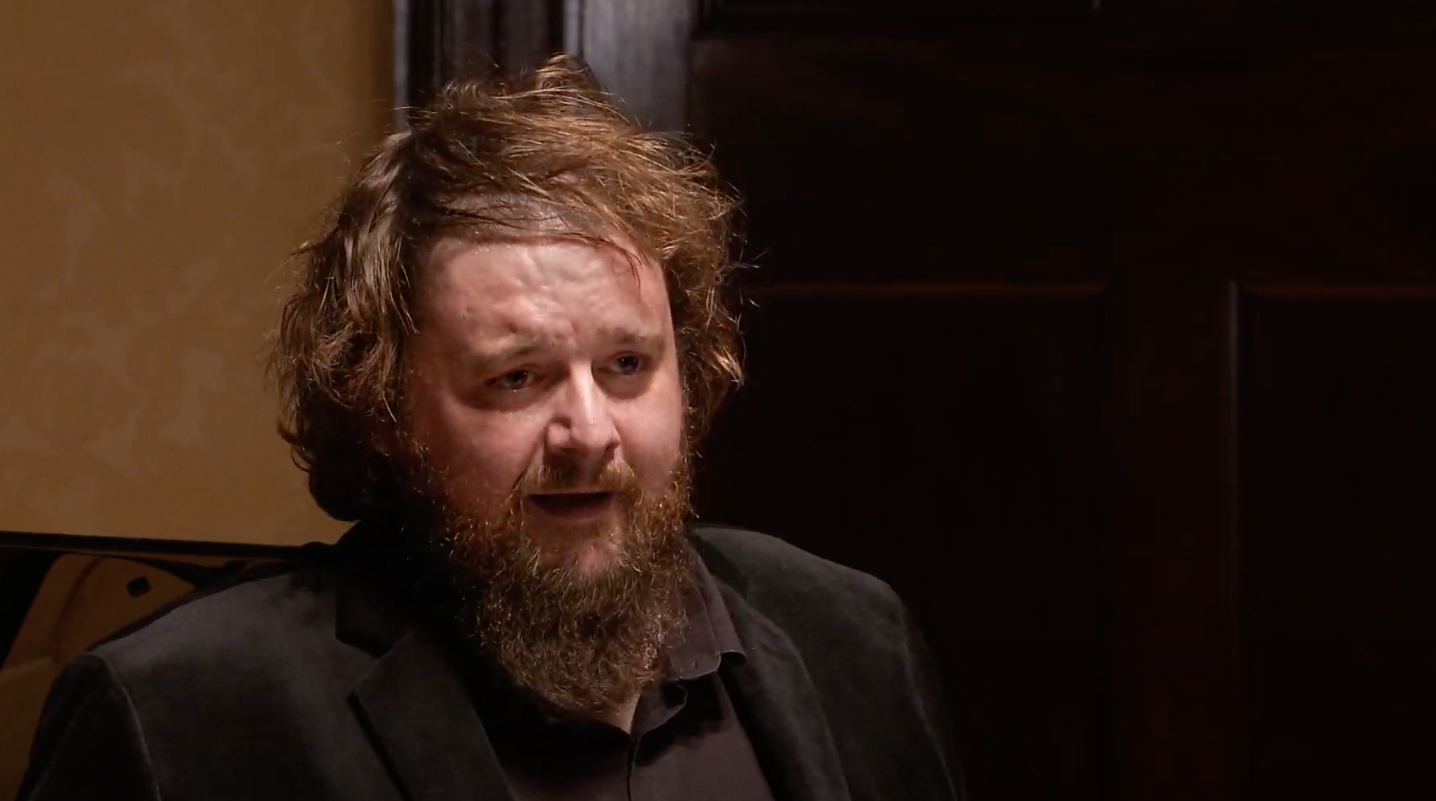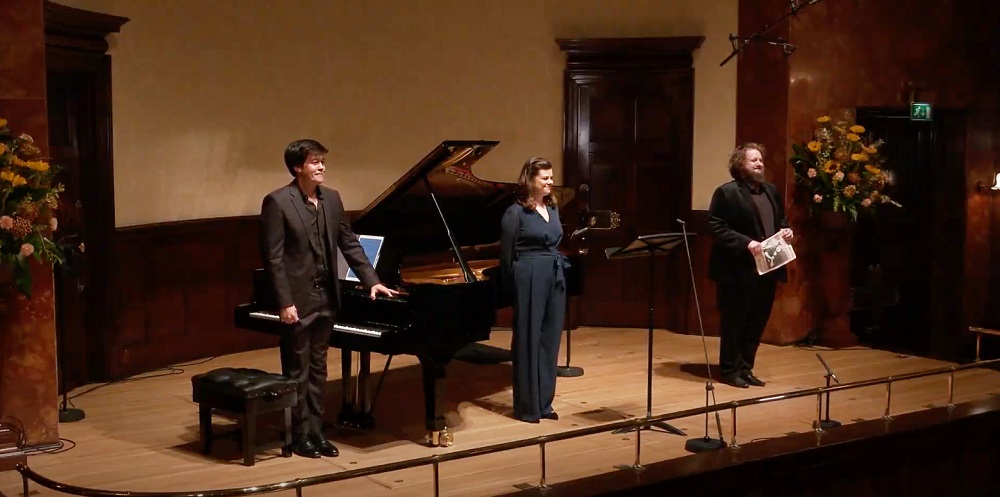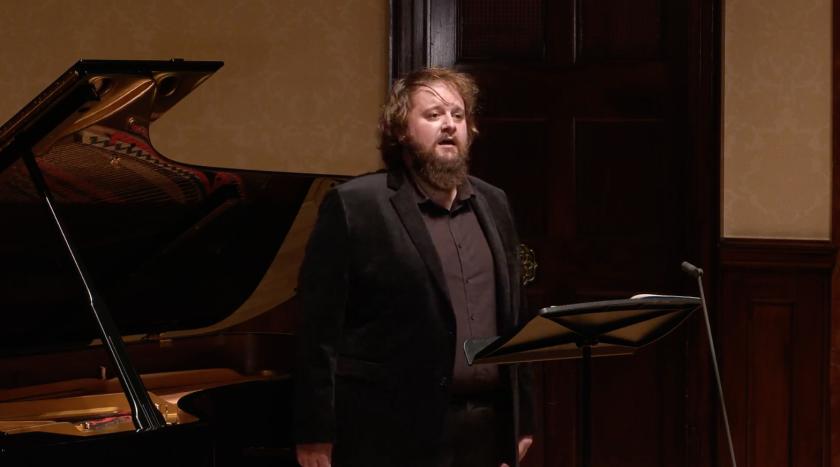Last seen gurning and camping his way across the Royal Opera House stage in absurdist musical fantasy Frankenstein!!, it was a very different Allan Clayton who held the Wigmore Hall in stillness just a few nights later.
We’ve seen a lot of the tenor at operatic extremes recently, walking a tense tightrope of drama and music in Brett Dean’s Hamlet, gamely flinging himself into the challenges of Gerald Barry, HK Gruber or Offenbach, and it’s good to hear that, when all else is stripped away, the voice is still as lovely as ever – and perhaps even more interesting, bringing back something of those musical adventures to the concert hall.
The programme was a sober one. Britten’s Holy Sonnets of John Donne don’t ease up in their musical questions, uncertainties and confrontations until two-thirds of the way through the cycle. From the insistent tolling that opens the piano part through the restless assault of “Batter my heart” and the drooping bitterness of “O might those sighs”, Clayton and pianist James Baillieu kept us edgy and unsettled as they wrestled with these inscrutable settings.  But “Since she whom I lov’d” finds transfiguring sensuality in death, and suddenly the cycle opens to new colours, new softness. It was a moment perfectly judged by Clayton, who leant into the consonance, resting for a moment on Baillieu’s lulling accompaniment – a pause before the final musical ascent to that shattering closing phrase, “Death, thou shalt die”. Nearby graveyards must have trembled.
But “Since she whom I lov’d” finds transfiguring sensuality in death, and suddenly the cycle opens to new colours, new softness. It was a moment perfectly judged by Clayton, who leant into the consonance, resting for a moment on Baillieu’s lulling accompaniment – a pause before the final musical ascent to that shattering closing phrase, “Death, thou shalt die”. Nearby graveyards must have trembled.
A fascinating satellite to the Britten, picking up where the unaccompanied final line of Sonnet VII leaves off, was South-African composer Priaulx Rainier’s Cycle for Declamation. Set for solo voice, no piano accompaniment, these Donne settings are absolutely exposed – thoughts happening out loud without musical mediation. There’s an honesty to Clayton’s delivery that thrives on this kind of exposure, you could hear him relishing the freedom in the actorly control of pace and weighting.
Before these 20th-century works we went back to where it all began – to Purcell’s contemporaries William Croft, Jeremiah Clarke and Pelham Humfrey. It’s here you can really measure just how far Clayton’s voice has come from his Oxbridge choral scholar beginnings. Heavier now, Peter Grimes in its sights and Wagner beyond, it’s a bigger instrument to manoeuvre around the filigree semiquaver passages. What’s lost in featherweight agility is gained in the range of colour and the sweetness of a head-voice croon that’s all the more effective for being so unexpected. Add this to the musicality of the phrasing, the care over text, the balance of purity and husk on any given note and you have an exceptional singer whose future prospects seem limitless.  Barbara Hannigan’s Momentum scheme for young artists saw Ferrier Award finalist mezzo Stephanie Wake-Edwards (pictured above with Baillieu and Clayton) stepping in mid-programme for a brief performance. Songs by Brahms, Mahler and Frank Bridge felt out of place – an interlude rather than an integrated part of the recital itself – showcasing a beautiful, velvety voice but giving little opportunity for the singer to relax into performance rather than audition mode. An encore – Britten’s arrangement of Greensleeves performed with Clayton – was the best thing by far: a proper musical dialogue and moment of connection.
Barbara Hannigan’s Momentum scheme for young artists saw Ferrier Award finalist mezzo Stephanie Wake-Edwards (pictured above with Baillieu and Clayton) stepping in mid-programme for a brief performance. Songs by Brahms, Mahler and Frank Bridge felt out of place – an interlude rather than an integrated part of the recital itself – showcasing a beautiful, velvety voice but giving little opportunity for the singer to relax into performance rather than audition mode. An encore – Britten’s arrangement of Greensleeves performed with Clayton – was the best thing by far: a proper musical dialogue and moment of connection.















Add comment